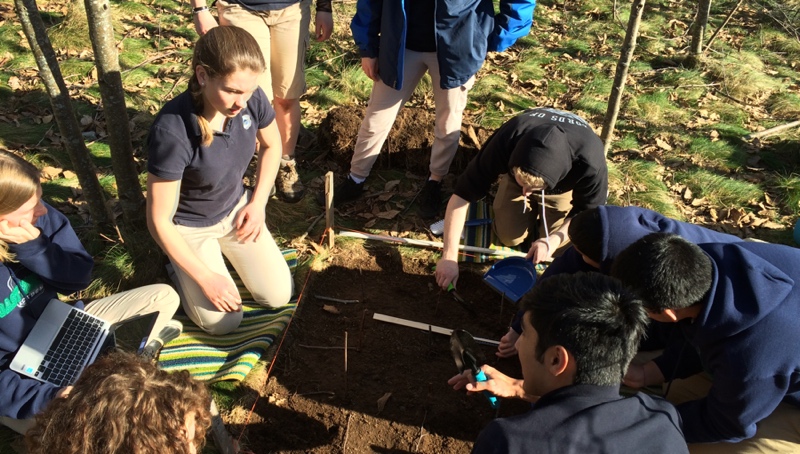Interdiscaplinary
Inquiry-driven Learning
An innovative curricular approach for the 21st Century.

When writting my Master's thesis in Ancient Mediterranean Cutlures, I realized that I was jumping between traditional disciplines almost every day. The physical sciences that underpin archaelology, epigraphy while reading Roman authors, and various construction-trades were all being connected in my work. This dynamic academic process led me to some remarkable learning; a reflection I brought with me into teaching.
Joining the Coast Mountain Academy faculty in 2015, I was empowered by the flexibility of the scheduling and the mandate to innovate to create something special. As the only faculty member teaching Senior English and various social sciences, the insights of my graduate work returned to inform my perspective on combining traditional subject areas using inquiry as a process. Professional development opportunities such as attending EduCon in Philidelphia in 2017 (where I first floated the idea publicly) only reinforced my thinking.
BC's New Curriculum
An important aspect of my blended courses is that they leverage the new emphasis on 'competencies' (skills) over prescripted content in British Columbia's latest curriculum update. These competencies are well-served by an inquiry approach, while the 'Big Ideas' around which each New Curriculum course is organized are compatible at abstract levels, which only serves to reinforce the effecitvness of the model when implemented.
Project-based
The buzz around "PBL" is well-documented at this point, however, I still think I'm doing something less common. I think the real power of PBL is when the students design the project. When students are given control over the content, the process, the deliverable, and even the assessment, unbelievable things happen. They end up in a "mess" and have to solve problems to get out. Naturally there is scafolding required and the depth of "mess" a grade 9 can sink into before panicking compared to a grade 12 is very different, but the degree of engagement, investment, ownership, and therefore learning from a 100% student-created project is actual magic.
Accordingly, most of the evaluations and larger assessments in my courses are on a ramp of scafolded student agency over 4 years, culminating in the Humanities 12 Social Science Inquiry Projects; 3 alomst completly student-designed projects that cover 100% of their selected grade 12 social science course (out of 5 options) through an inquiry process and about 30% of their English 12 course.
Assessment
Assessment philosophy is a core part of the paradigm shift in education today. Exactly how and what to 'measure' for the purposes of student-growth, teacher-development, and reporting are difficult difficult topics. Blending subjects and enshrining student-agency with project-based activities only muddies the water further. Ultimately a constant return to the high-level Learning Outcomes themselves and judicious use of professional judgment with respect to individual students' growth has been effective in determining grades representative of proficientcy and growth.
Additionally, the adoption of tools like Single Column Rubrics and Performance-based Grade Descriptors aid in co-creating and communicating assessment and evaluation to support the 'for, as, and of' rationales.



